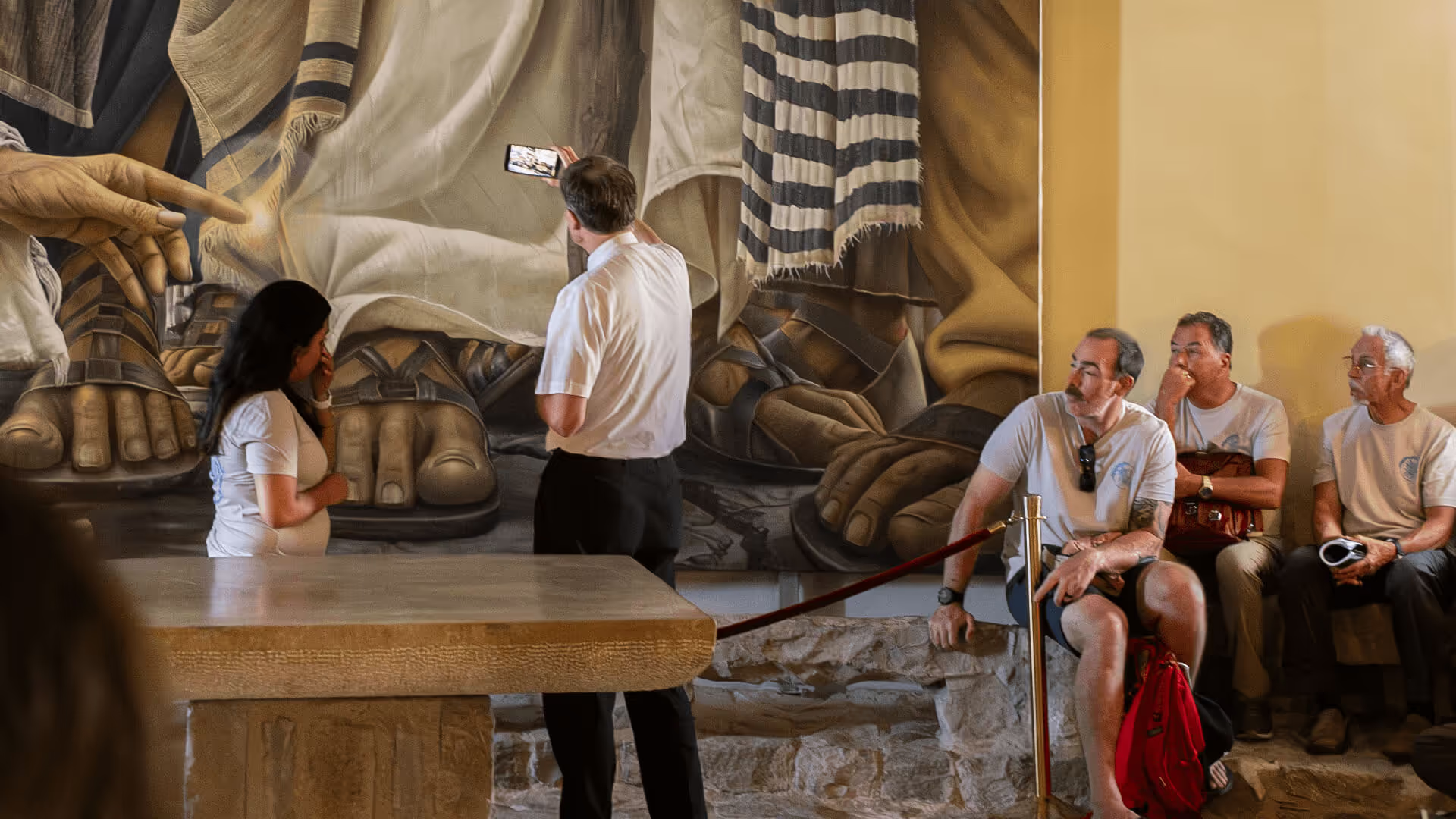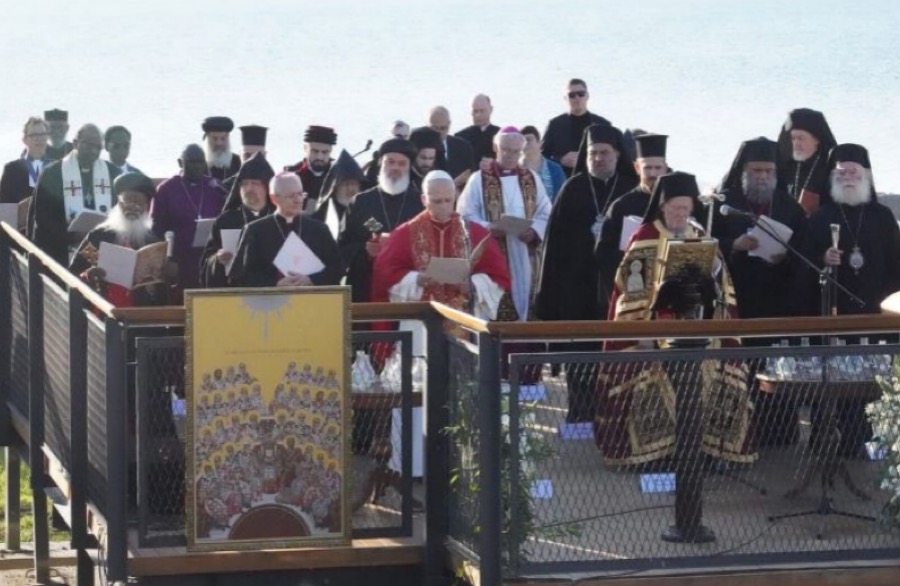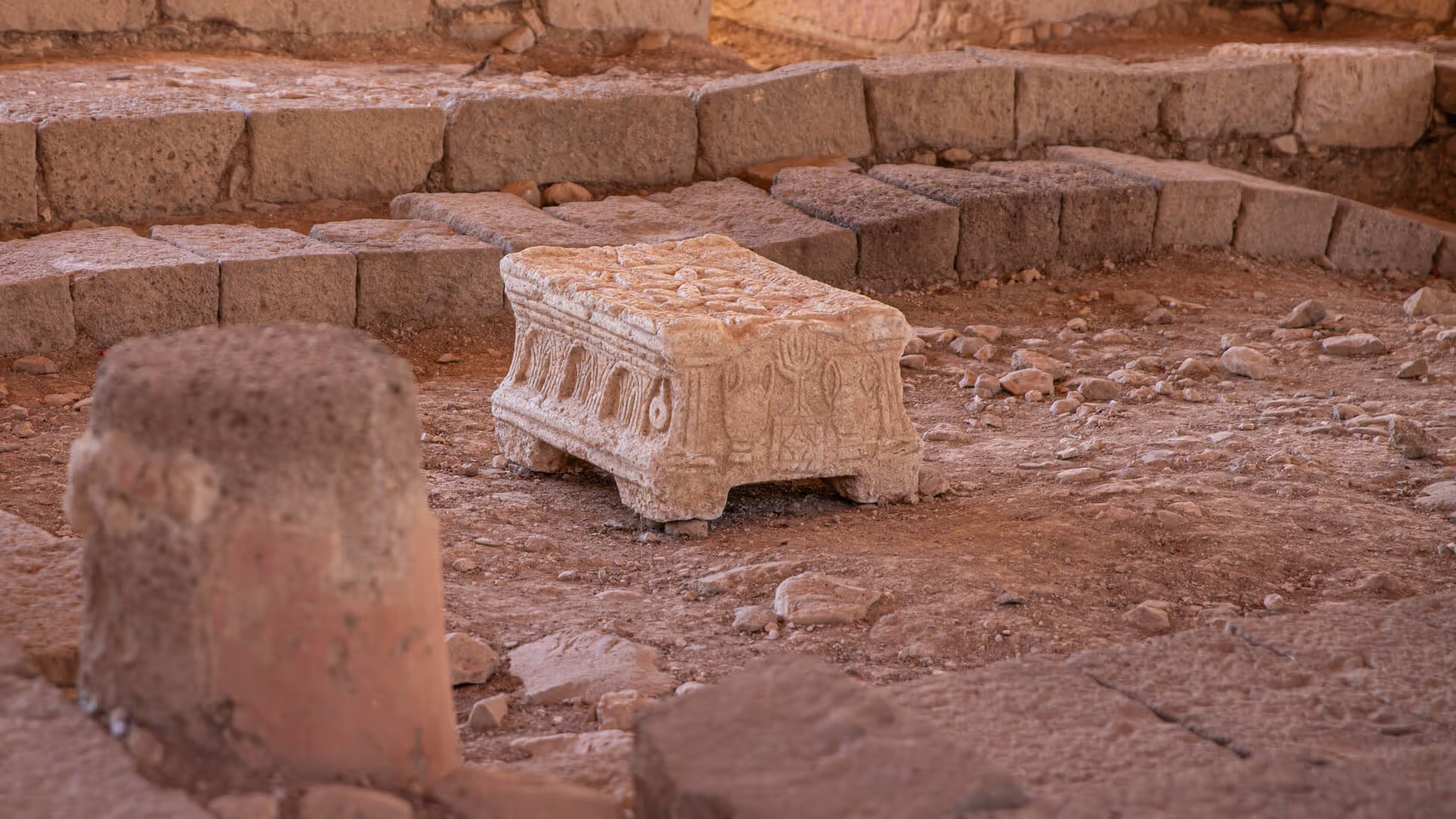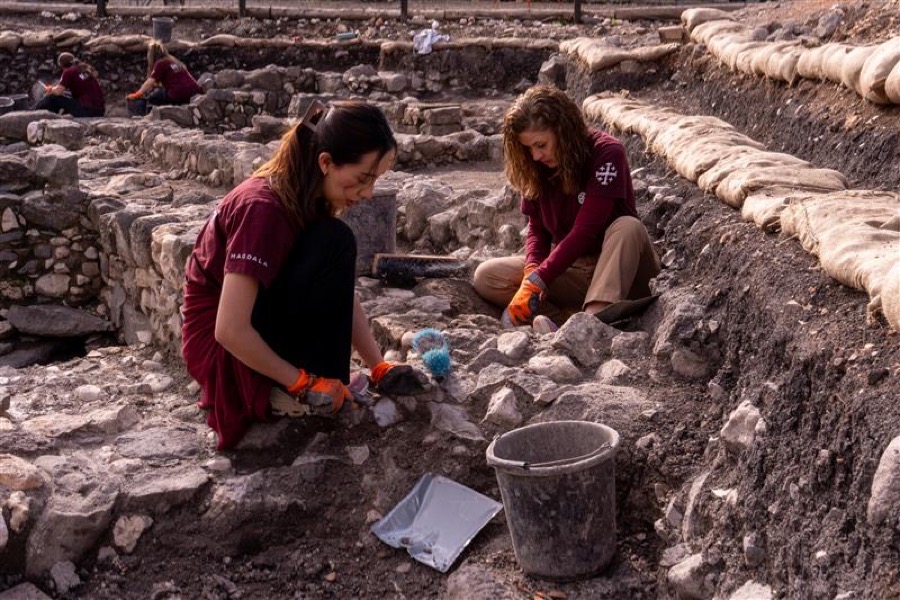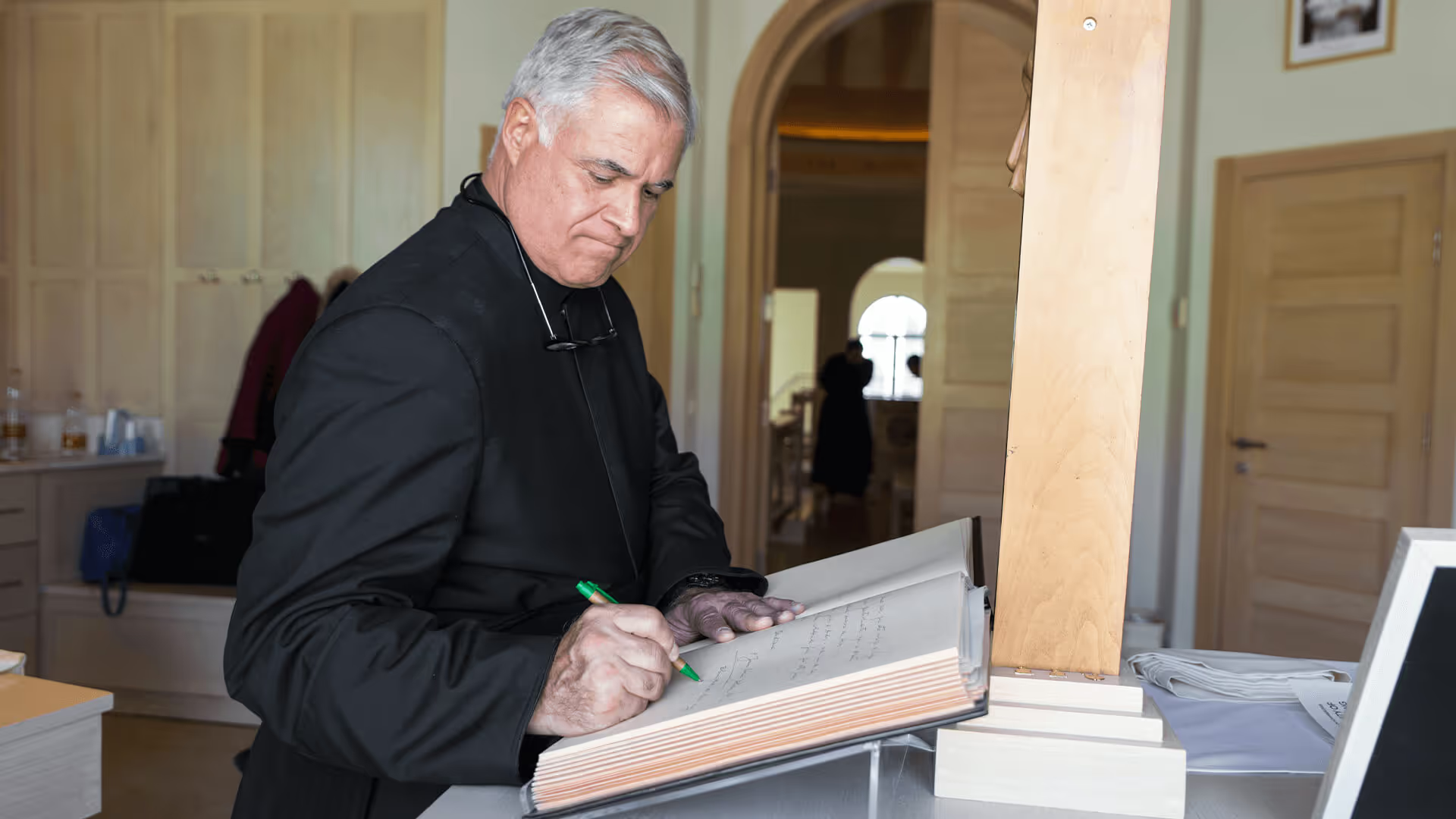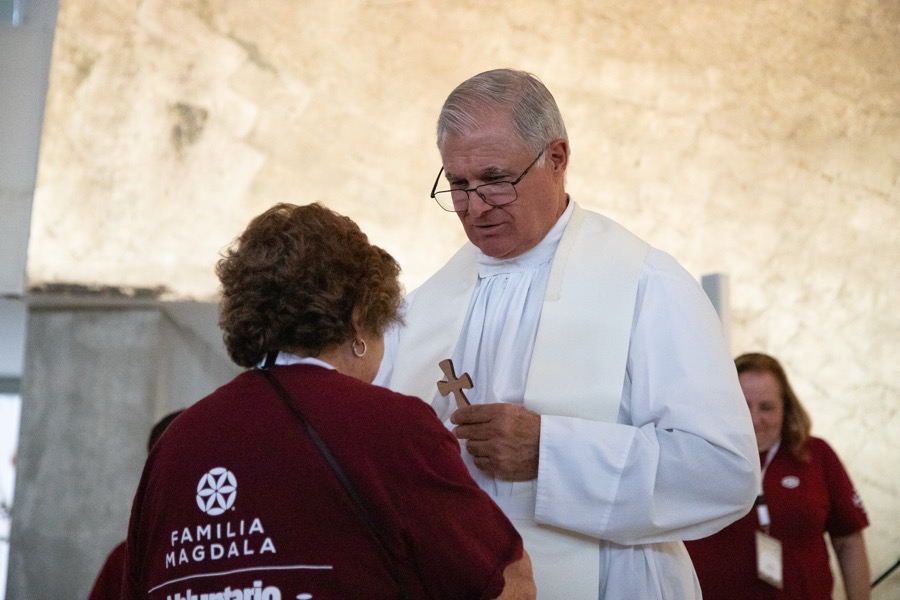On Thursday, November 6, a wonderful breath of fresh air swept through Haifa University, perched atop Mount Carmel, overlooking the Mediterranean Sea. Religious leaders from Druze, Muslim, Jewish communities, and others from across the Christian spectrum, alongside areligious people of good will, gathered there with academics at the Haifa Laboratory for Religious Studies (HLRS) to confer their annual Peace Award on Cardinal Pierbattista Pizzaballa, Latin Patriarch of Jerusalem. After two years of harrowing conflict where violent aggression monopolized the environment, it did everyone good to hear voices of our shared humanity reclaim a spot in public space. Who has the nerve to contribute goodness where negativity dominates? We are often tempted to add negativity when folks are trying to do their best. It’s time to add more goodness until our cup overflows. We are all encouraged when someone steps up to relieve those who are suffering unbearably.
Community brokenness is a great opportunity for many virtues to grow if only we seek your kingdom.
If we are seeking our kingdom, then community brokenness is completely unbearable, and we will exacerbate the negative circumstances and increase the burden. Community brokenness is the circumstance for us to become more generous, patient, and giving. It is the arena where the practice of heroic virtue brings healing as we lay down our lives to serve God’s peace in each soul and the community at large.
In times of conflict, we are called to commit more deeply to God’s kingdom, with patience, generous giving, humility, speaking well, and giving every single person the respect they deserve for being the image and likeness of God, however broken or infested by evil forces and enmeshed in depraved and malevolent dynamics they may be.
Times of conflict call for greater and quieter self-giving in the confidence “that all things work for good for those who love God, who are called according to his purpose” (Rm 8:28). Simply put, we just must look at Jesus and follow him in his handling of conflict, which is all expressed in the Our Father prayer combined with the Beatitudes. We will not eliminate all the conflicts, but as they rage, our love can grow in greater service to Christ’s Kingdom. We might not lessen the conflict, but we may become less conflictive.
Precisely in times of conflict, the Lord is shaping great saints who rise up with many timely virtues. Maybe this is also a meaning of entering the narrow gate! “Strive to enter through the narrow gate, for many, I tell you, will attempt to enter but will not be strong enough” (Lk 13:24). What striving this takes! In times of conflict, we should not dream of simplistic solutions, nor brandish shallow slogans which enable injustice and result in selfish alliances with pernicious consequences.
“Where there is hatred, let us sow love!”
This familiar prayer of St Francis captures our intended message. Times of conflict require me to pray more to become strong, and remain steadfast alongside my family or community, as I embrace each person with greater humility, patience, and love.
The other day, a wonderful Calvary Church pastor visiting here quoted an old friend of his who served as a Catholic priest in Central America: “A missionary goes to where he’s not loved but needed and leaves when he’s no longer needed but loved.” The way he approached that whirlpool of war and misery was to go in and throw some hard rocks into the pool to calm the water. “You need people of character to come in and be rocks in the whirlpool of verbal, emotional, and physical violence.” Simply put, we look at Jesus and follow him in his handling of conflict. Much is expressed in the Our Father prayer combined with the Beatitudes. Participation in God‘s mercy is the gold band that bends to bind various conflicting parts together.
My hope, O Lord, is in your mercy.
I trusted in your mercy,
Let my heart rejoice in your salvation;
let me sing of the LORD, “He has been good to me.”
My hope, O Lord, is in your mercy. (Ps 13:6)
I must be part of this enterprise of conflict resolution, of the re-embrace of all those made in God’s image and likeness. Blessed are the peacemakers, for they will be called children of God. Theirs is the kingdom of heaven. All glory to you, Lord, for reconciling enemies and separating us during our fights and making us new. Conflict is a time for creative love and self-giving to bring relief where suffering needs urgent remedy.
Lots of hurt from former conflicts. More hurt emerging from your own conflict. Every society, from the family to the international community, including religious communities of all kinds, experiences serious conflict and hurt. Everybody hurts!
What a divine vocation to be engaged in reconciliation and peacebuilding! Never let me exacerbate a conflict and always have me thoroughly engaged in de-escalation and assisting the wounded to rebuild fraternity, neighborliness, and cooperation towards full communion for everyone.
Fathers and mothers greatly contribute to forming peaceful and peace-making children. Parents lead the children by their example of communion as a couple, so diverse in character, temperament, and upbringing. Every conflict resolved with patience and goodness helps transform children into peacemakers. Family life is the greatest long-term contributor to societal peace. School life and recreation contexts follow seamlessly in this formation process.
Let us live life fully! Let us reconcile!
The Holy Spirit is given to us as an infinite resource for our transformation as peacemakers and for our activity for reconciliation and communion everywhere. We have inherited brokenness but are also privileged with many opportunities to foster renewal and harmony. Everybody can work with hope for a better future among us all. This is also part of the work of One Step Closer - Hospitality Together, which we must explain to you in more detail later.
The Heavenly Father is very ready for our reconciliation with him and to equip us for our reconciling activity among ourselves. “Forgive us our trespasses as we forgive those who trespass against us and lead us not into temptation but deliver us from evil”. It seems that the main purpose of our hidden strength is reconciliation. Look at the Our Father prayer, which requests our daily bread, so necessary for our daily activity, which is then only expressed as forgiveness and deliverance from evil.
So, after breakfast and after lunch, and after dinner, our most important activity to which we can commit all our energy is reconciliation with the Father and with each other so that we may all be delivered from evil. That’s the end of the Our Father prayer! When we accomplish that, we can say amen! This is life in full! Let us live life fully. Our lives are to be dedicated to reconciliation and the renewal of every person and community. No shortage of activity! How amazing that Jesus ends the prayer right there and does not add other extras. Could it be that he wants us to focus on these primary realities?
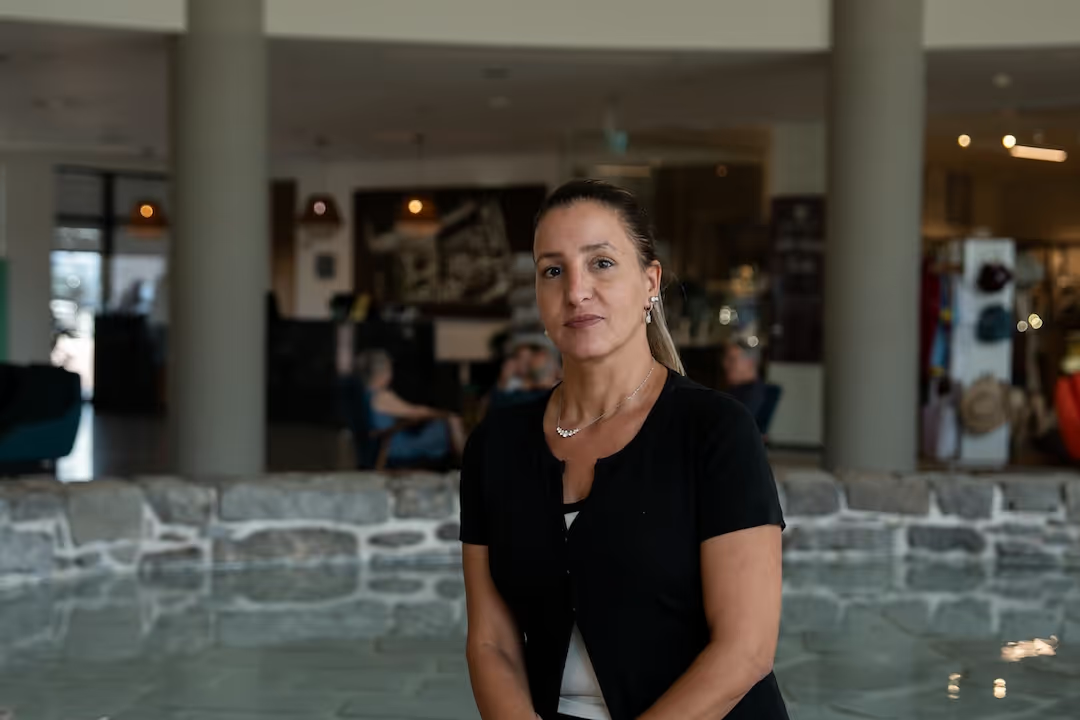
Merav Oknin
Assistant accountant
“At Magdala, I love how people treat each other. It’s fun to work here. You feel so respected.”
My name is Merav. I am a married mother of three, living in Beit She'an. I work in Magdala and have been working for about a year and a half as an accountant at the hotel.
At first, I was a little apprehensive about working in a place that is very different, with many sectors and cultures.
I am Jewish, and my parents immigrated from Morocco—a different culture. But in Magdala, I found myself in an amazing place with a rich mix of cultures, getting to know the world of priests, nuns, churches, Christians, Jews, Muslims, Druze, and more.
It is very interesting to learn about and get to know the different holidays of each culture. It is very nice to see how people respect one another’s holidays, each person’s Shabbat, and each one’s faith. In the end, when everyone sits down to eat lunch together, it truly shows that we are all essentially the same—people who want to live together, make a living, and at the same time experience many different cultures, especially here in the Land of Israel.
Discover more articles from this category
